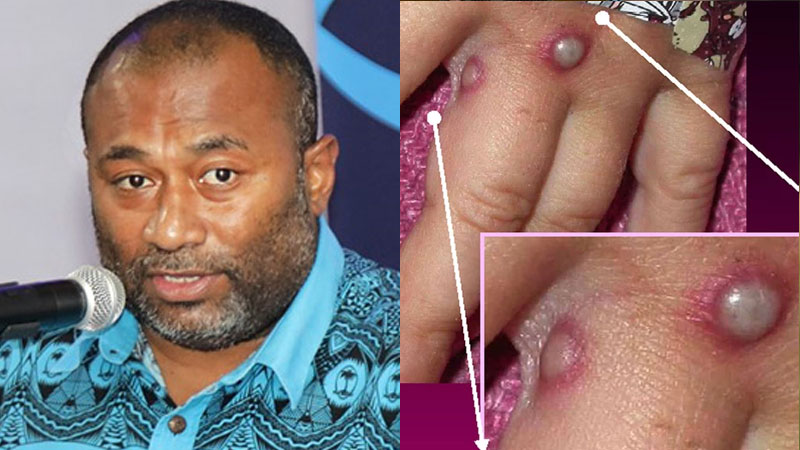
People can expect a return of contact tracing and isolation protocols if cases of Monkeypox are found in the country.
This has been highlighted by Minister for Health, Dr Ifereimi Waqainabete while responding to questions about protocols for Monkeypox cases.
Dr Waqainabete says they will conduct surveillance with rapid response and containment protocols as well.
He adds they are in consultation with overseas experts and are working on their secondary response in terms of contact tracing and isolation.
Monkeypox is a rare disease that is caused by infection with the Monkeypox virus.
It is endemic to certain countries in Central and Western Africa, and the causative virus is of the same family as the smallpox virus.
Monkeypox outbreaks have been recently reported in a growing number of countries that are not endemic for the disease, including the United States of America, Australia, the United Kingdom, Spain, Portugal, France, Italy, Germany, Sweden, the Netherlands and Canada.
Permanent Secretary for Health, Dr James Fong further says one key focus will be to ensure we have the ability to maintain oversight over travellers from selected countries to ensure early diagnosis, treatment and contact tracing.
Monkeypox is usually a self-limiting illness, which means that most people recover with just supportive treatment within several weeks.
However, severe illness can occur in some individuals. It does not spread easily between people but person to person transmission may occur through contact with clothing or linens (such as bedding or towels) used by an infected person in direct contact with monkey pox skin lesions or scabs and exposure to respiratory droplets through coughing or sneezing.
Symptoms include fever, chills, muscle aches, backache, swollen lymph nodes, exhaustion, an unusual rash which typically starts on the face and then may spread elsewhere on the body.
Stay tuned for the latest news on our radio stations

